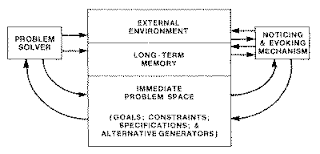Arts in Ealing

The Pitzhanger Manor Gallery is showing a couple of exhibitions at the moment, one of which is called
Walk On: 40 Years of Art Walking it has a rather retro looking continuous computer animation from Julian Opie (called
Summer 2012 - more retro than 9 months!) and an actually retro
Hamish Fulton photographic piece of a group walking together, I particularly liked the
James Hugonin Binary rhythm which looked like a mosaic but not sure how this related to walking.
 |
| Binary Walking? |
The other exhibition at the gallery is by David Royle and is exciting and dynamic with a new perspective view (to me anyway) The works are influenced by the artists' visit to New York and London- take a look
here at what is showing.
In other Ealing Arts News the OPEN arts project is creating a
pop up shop in West Ealing.
Big Idea 99 (nearly half way through the Crofton book) is Sovereignty
Tied to Government and the state Ian Crofton postulates Sovereignty as a 'big idea'. online the
Stanford Encyclopaedia has some detail on the concept it says -
"Sovereignty, though its meanings have varied across history, also has a core meaning,
supreme authority within a territory. It is a modern notion of political authority. Historical variants can be understood along three dimensions —"
1) The holder of sovereignty, (For example in the UK the Queen)
2) The absoluteness of sovereignty, (this can be affected by membership of other entities like the
EC)
and
3) The internal and external dimensions of sovereignty.(defined by borders and marine agreements)

The state is the political institution in which sovereignty is embodied. An assemblage of states forms a sovereign states system.
The history of sovereignty can be understood through two broad movements, manifested in both practical institutions and political thought. The first is the development of a system of sovereign
Peace of Westphalia in 1648.
states, culminating at the
Contemporaneously, sovereignty became prominent in political thought through the writings of
Machiavelli, Hobbes Luther and Bodin,.
The second movement is the circumscription of the sovereign state, which began in practice after World War II and has since continued through European integration and the growth and strengthening of laws and practices to protect human rights.
The most prominent corresponding political thought occurs in the writings of critics of sovereignty like Bertrand de Jouvenel and
Jacques Maritain.
In the UK sovereignty is said to reside (at present)
in the Queen in Parliament.
In The USA internal sovereignty resides in the
constitution.


















































